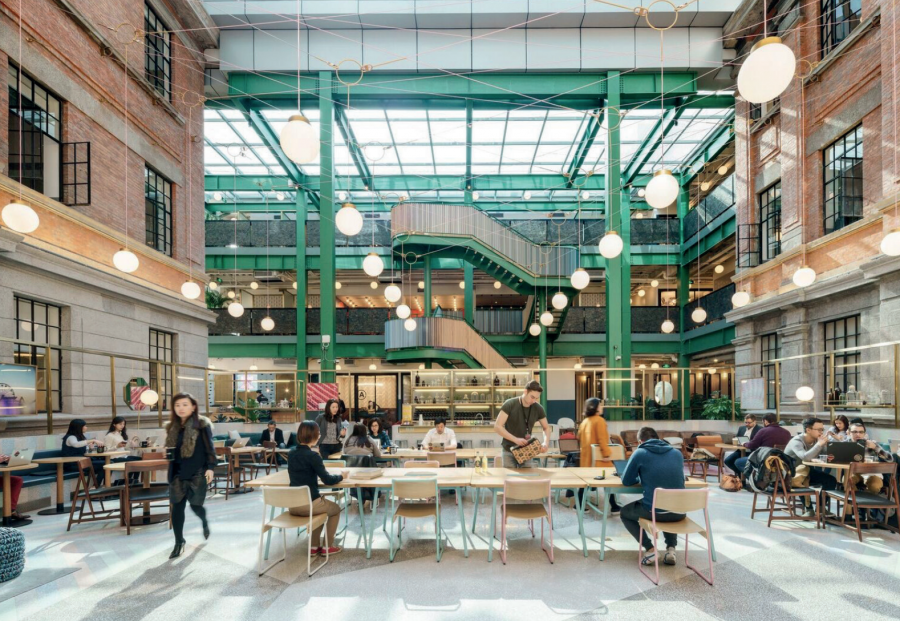|
Nicholas Fearn
Real estate investors will face “a test of nerve” in 2019 as they respond to economic uncertainty and pressure to overhaul traditional business models.
That’s according to a new report from PwC and Urban Land Institute, “Emerging Trends in Real Estate: The global outlook for 2019”, which explores the impact of technological, social and demographic trends on the built environment.
PwC and ULI interviewed 27 global industry leaders about the challenges faced by the sector and the role technology plays in overcoming them.
Logistics
Described as the “go-to investment” for the coming year, PwC and ULI say it is benefiting from the growth in e-commerce and consumer expectations around product availability and speed of service.
E-commerce fulfilment makes up an estimated 20% of new leasing in the US, which suggests long-term growth, as logistics online sales continue to accelerate. The report also claims that online sales are generating three times the demand for warehouse/distribution space compared with in-store sales.
Retail
In retail, the rise of online sales, new technologies and consumer behaviour will reshape and reduce the number of physical stores for legacy retailers. While many online retailers are adopting multi-channel and brick-and-mortar outlets, online sales are expected to grow from 10.2% of all global retail sales in 2017 to 17.5% in 2021.
“People are looking for experience, rather than just another piece of clothing,” one interviewee said.
PwC-ULI expect cutting-edge innovation in the retail industry to spread across the globe. In particular, it highlights Asia as a region that has a tech-led retail sector. By visiting stores like Decathlon, consumers can pay for products via their phones without going to a checkout, and China uses smartphone IP addresses and facial recognition to give retail staff information about customer buying history.
And in the US, Amazon Go stores allow customers to sign in with their smartphones while sensors track the goods they want to buy.
Hospitality
For hospitality businesses, the effects of digital disruption are quickly being realised. PwC-ULI note how Airbnb has created “millions of square metres of extra supply at the touch of a button” and how “the rise of online travel agents fractured the traditional relationship between hotel groups and their customers”.
The firm believes that travellers for both business and leisure are looking for bespoke experiences rather than traditional hotels. Hotels are innovating by converting amenities into new rooms, improving communal areas, increasing the number of smaller and design-led rooms, and adopting agile practices.
Offices
As flexible and co-working spaces keep gaining traction, PwC-ULI believe that offices are on the cusp of a revolution. The firm predicts that long-term leases for traditional offices will shrink due to the growth of technology-enabled remote working and the more efficient use of existing space through agile practices.
Residential
Although residential and industrial sectors are aided by a positive balance between supply and demand, there are still challenges. For instance, residential owners are facing increasing pressure to provide services that tenants demand – like logistical challenges like parcel delivery.
Construction and big industry
For big industry, there are new problems around building design. Over the next few years, it’s likely that occupiers will continue to invest in technologies such as robotics and automated vehicles – something that is changing the dynamics of building construction.
What’s more, construction and building design firms are being increasingly pressured to promote sustainability. Echoing growing industry opinion, PwC-ULI say buildings will lose out if they fail to adhere to new regulations and standards imposed by governments.
While new builds play an important role in the real estate economy, there’s an onus being placed on renovation. “Given the cost and environmental impact of developing new buildings, redevelopment and refurbishment have to become more important in future,” one interviewee said.
Someone else added: “As long as a building can be fitted with fibre optic cabling throughout to allow fast wifi, it can be made fit for purpose.”
Another re-use trend is food delivery platforms like Deliveroo and Cloud Kitchens converting offices, shops and industrial land into kitchen space.
Redefining value
Throughout the report, it’s clear that consumers determine the success of real-estate projects. Technology, particularly mobile, is putting more power into their hands and transforming the retail, hospitality, office and industrial sectors.
In order to create valuable assets that meet consumer expectations, organisations must use technology to measure feedback from people – whether that’s about what they like about the building and how they use it daily.
“Owners will need to forge closer ties with occupiers, to collaborate and analyse what is working for the people using buildings, day in and day out,” the report states.
“The owners who can assess how people want to feel about a building and fulfil that hitherto intangible demand will be the most likely to avoid their assets becoming obsolete. But this process is still in its infancy.”
The report concludes by stating that investors must take into account bigger operational teams, technology to monitor asset value and customer satisfaction, and more intensive use of assets.

